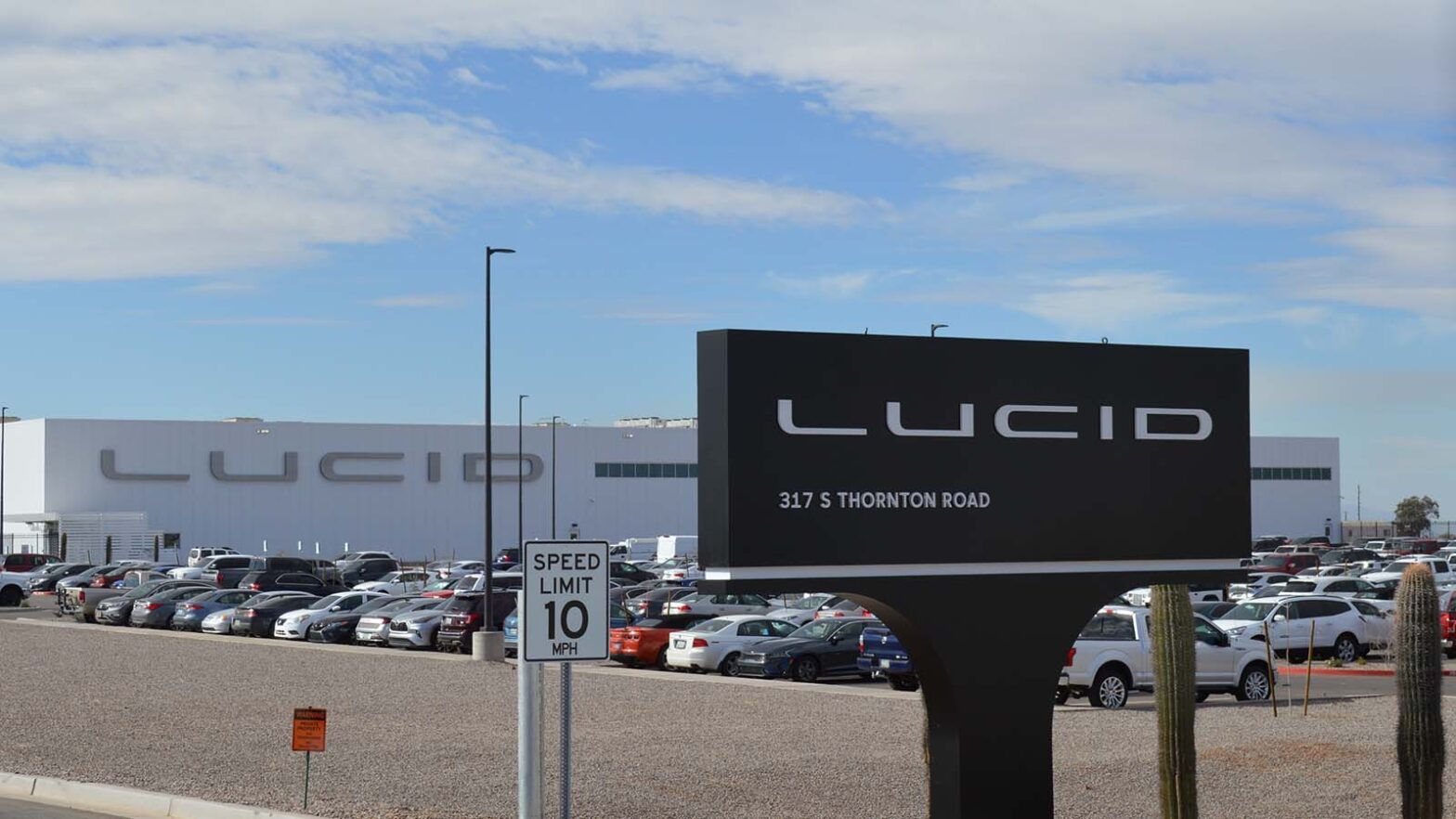Lucid Group (NASDAQ:LCID) stock had been sinking deeper into penny stock territory,” but recently has bounced back. On Jan. 29 alone, the fledgling EV maker’s shares skyrocketed 27.17% higher. Even after pulling back slightly, the stock is still up by over 25% over a relatively short time frame. Lucid’s return to over $3.45 per share may indicate a comeback. It’s possible, but don’t jump to conclusions yet.
Even as there’s a chance that a corporate announcement, not just an unexpected resurgence of hope and hype, is driving this rally, as I’ll explain below, it’s not quite time to declare that the story here is changing for the better.
Why LCID Stock Rallied by More Than 27% on Jan. 29
Check out headlines about Lucid’s latest super rally, and it’s hard to find a definitive answer to, “What caused this big run-up?” As Barron’s commentator Al Root argued, this rally may have been due to a short-squeeze, but it’s a mystery why a short-squeeze suddenly took shape.
Then again, maybe not. At least, based on what InvestorPlace’s Shrey Dua said is likely the driver of this bounce-back for LCID stock. According to Dua, on the same day as the super surge, the company announced that it had signed a three-year deal with Ma’aden Rolling, for the provision of aluminum panels used in the production of Lucid vehicles.
I can see why this deal has been possibly perceived as very promising for Lucid Group, in two ways. First, securing a supply deal bodes well for the company’s production ramp-up efforts, following the EV maker’s past manufacturing hiccups.
Second, as Ma’aden is a subsidiary of Saudi Arabia’s state-owned mining company, it’s yet another example of the Saudi Government continuing to support Lucid’s expansion. As you may already know, Saudi Arabia’s PIF sovereign wealth fund owns a majority of LCID’s outstanding shares.
Is a New Bull Case Emerging? Not So Fast
Don’t get me wrong. It’s great that there’s been a positive company-specific development for LCID stock. In recent months, news out of the company has been largely negative. Examples include last month’s news of Lucid CFO Sherry House’s unexpected resignation, as well lackluster deliveries news and an announced vehicle recall during this month.
Yet while the Ma’aden deal is by all means good news, again don’t jump to the conclusion that the situation is improving with Lucid Group. Securing suppliers to boost production is one thing, but finding demand for increased output is another.
Based on its delivery numbers, Lucid continues to make little progress penetrating the U.S. electric vehicle market.
Lucid’s Saudi backing may improve its prospects in the Middle East, but chances are big success in this region alone won’t help sustain, much less grow, LCID’s valuation ($7.72 billion). Not only that, while further cash infusions from PIF may help the company reach the mass production stage, these capital infusions come at the cost of shareholder dilution.
The issuance of additional shares may water down the value of outside investors’ positions, while at the same time limiting potential upside, if a “best case scenario” plays out.
The Takeaway
Low-priced and highly volatile, I know it’s tempting to enter a speculative position in LCID.
After all, it may take just another bit of positive news (like the Ma’aden deal), or just another wave of speculative frenzy, to send the stock surging once more, producing large and quick trading profits.
Yet while those with fortuitous timing could accrue fast money gains, many may just as easily get stuck holding the bag.
Lucid’s persistent negatives (weak demand, continued cash burn, heavy shareholder dilution) may slowly but steadily continue to push shares lower. First back to all-time lows, and perhaps from there to even lower prices.
If more news/evidence emerges that Lucid is finally pulling away from its longstanding problem, a change in view could be warranted. Until then, however, consider it best to avoid LCID stock.
LCID stock earns a D rating in Portfolio Grader.
On the date of publication, neither Louis Navellier nor the InvestorPlace Research Staff member primarily responsible for this article held (either directly or indirectly) any positions in the securities mentioned in this article.

